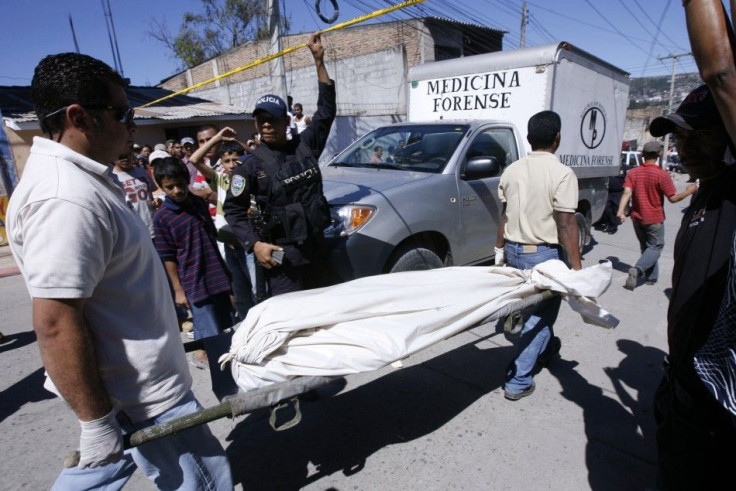Honduran Journalist Shot, Killed Outside Her Home

Radio news host Luz Marina Paz was fatally shot by motorcycle-riding gunmen on Tuesday as she commuted to work in the capital of Honduras.
Paz and her driver were hit by dozens of bullets fired by men on two motorcycles outside Paz's home in Tegucigalpa, national police spokesman Luis Maradiaga said, The Associated Press reported.
Paz, 38, hosted a morning program called Three in the News on the Honduran News Channel. She primarily discussed politics and narcotics trafficking, though she was not among Honduras' best-known or most outspoken journalists.
According to the IPI Death Watch, Paz is the 16th journalist killed in Honduras since the beginning of 2010, but the first female. Human rights advocates say that since 2007, 23 journalists have been killed in Honduras, many of whom it is said have angered criminals and drug traffickers with their work.
Media outlets cited unofficial accounts that Paz, who owned a small business, had been threatened by an extortion gang for refusing to pay protection money.
These new attacks are part of a campaign of violence and insecurity in general, and of threats and intimidation against editors and journalists in particular that we have been denouncing in Honduras, said the president of the Miami-based Inter American Press Association, Gustavo Mohme.
Paz's death came a day after a security guard was wounded in an attack on the offices of La Tribuna, a newspaper owned by former President Carlos Flores.
The country of 7.7 million people saw 6,200 killings in 2010. That's the equivalent of 82.1 homicides per 100,000 people, well above the 66 per 100,000 in neighboring El Salvador.
© Copyright IBTimes 2025. All rights reserved.





















